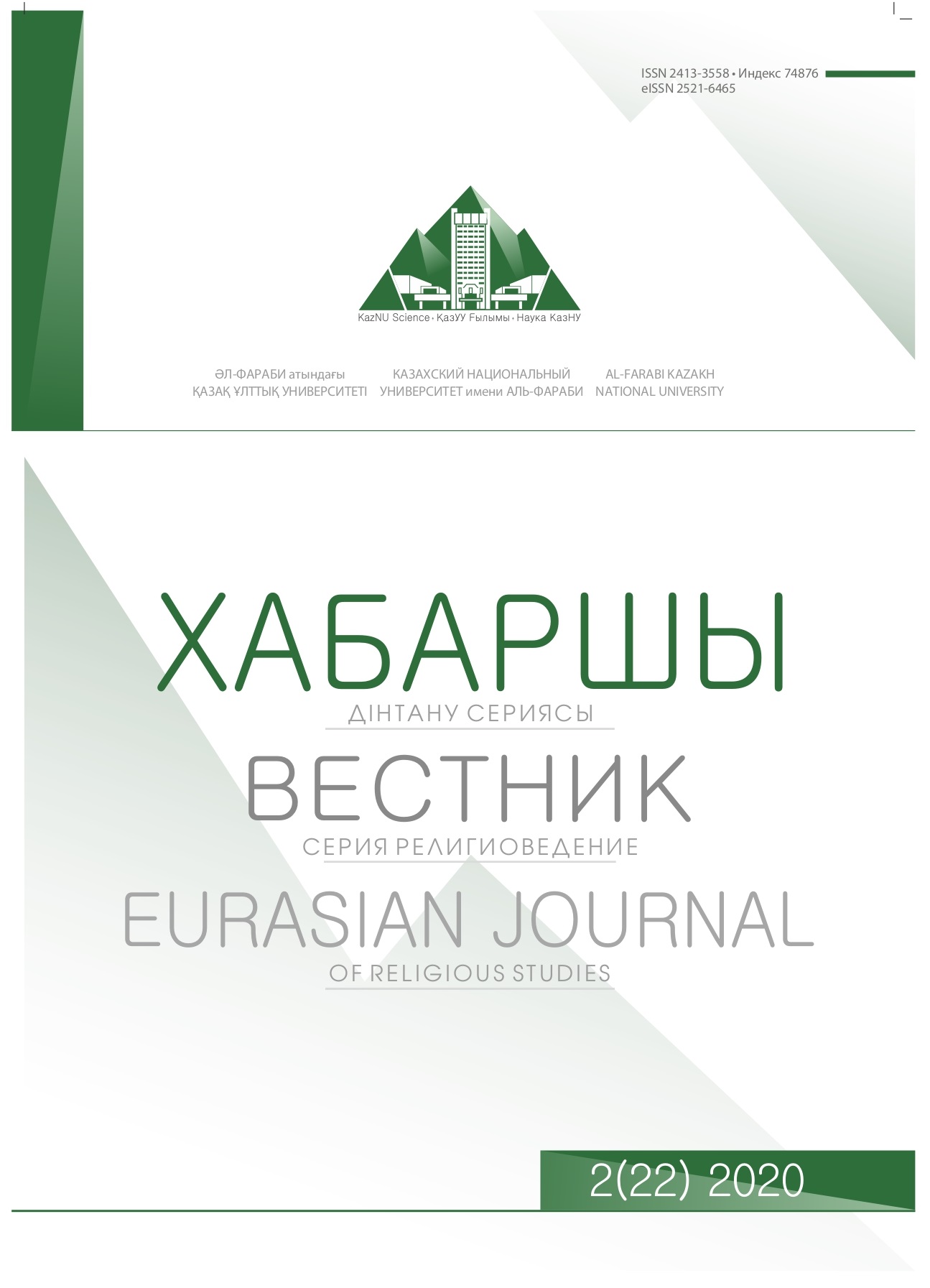The turkic philosopher farabi who opened the islamic renaissance or the farabism era
DOI:
https://doi.org/10.26577/ejrs.2020.v22.i2.r7Abstract
IX-XIVth centuries are known the Islam Renaissance. At the same time, this period is called the Age of Farabism, so it is named after Farabi, a Turkic Philosopher. This was the First Turkic Renaissance. Farabi systemized the Philosophy of Greek by reinterpreting it with the idea of Islam and Turkic with his versatile thoughts and competence in all sciences of his era. it is also XII-XVIth Century that all Turkic thinkers were influenced and inspired by the Farabism era. The Turkic thought was also inspired by the century. The inspiration was the basis for foundation philosophy of the Republic of Turkey in 1923. This was the third Turkic Renaissance. The first Renaissance is called by Farabi’s name, the latter by the Turkic sufis and their mystical philosophy, and the third is referred to Ataturk Revoulutions. The period from Farabi to the foundation of the Republic, takes the three Turkic Renaissance that we owe to Farabi.
References
Ahmet Ateş, Farabi, Ihsau’l-Ulum, Çev. MEB Yayınları, İstanbul 1989, pp. 1-53.
Ahmet Ateş. Farabi, İhsau’l-Ulum, Çev., pp. 23-44.
Ahmet Cevizci, History of Medieval Philosophy, p. 100–114.
Ahmet Cevizci, History of Medieval Philosophy, Asa Pub., Bursa 1999, p. 101.
Bekir Karlığa, Bir Medeniyet Düşünürü Farabi, İnsan Yayınları, İstanbul 2019, Introduction.
Deborah L. Black, Al-Farabi, s. 178 (History of Islamic Philosophy, edt. by Seyyed Hussain Nasr&Oliver Leamann, Routledge, NY.1993, in Vol. I).
Encyclopedia of Islam, Leiden E.J. Brill, 1980, Farabi Mad.
Frederick Copleston, S.J., A History of Philosophy, Image Books, N.Y., 1962, vol. II/214–215;
Friedrich Dieterici, Alfarabis Philosophische Abhandlungen. Leiden-E.J. Brill, 1890, ss.115-118.
Friedrich Dieterici, Alfarabis Philosophische Abhandlungen. Kessinger Publishung: 2010 p. 164.
George Makdisi, The Rise of Humanism in Classical Islam and Christian West, Edinburg University Press 1990, p. 250.
George Makdisi, The Rise of Humanism in Classical Islam and the Christian West: Edinburgh University Press p. 431.
Hasan Şahin, History of Islamic Philosophy Lectures, Theology Faculty, Ankara 2000, p. 85.
Hilmi Ziya Ülken, Türk Tefekkürü Tarihi, YKY, 4. Baskı, İstanbul 2009, p. 124.
Ian Richard Netton, al_Farabi and His School, Routledge 1991, p. 1–8.
İbn Ebi Usaybia, Uyunu’l-Enba fi Tabakati’l-Etıbba, II, 138 (narrator, İ.H. Aydın, p.m.w., p. 26).
İbn Ebi Usaybia, Uyunu’l-Enba fi Tabakati’l-Etıbba, II, 138; İbn Hallikan, Vefeyatü’l-Ayan, IV, 242; Abdurrazık, Mustafa, Feylesofü’l-Arab ve Muallimu’s-Sani, p. 67 (narrator, İ.H. Aydın, Ibid., p. 26).
İbn Ebi Usaybia, a.g.e., II, 137 (narrtor, İ. H. Aydın, p. 27).
İbrahim Hakkı Aydın, Metaphysical Thought in Farabi, Bil Publications, İstanbul 2000, p. 13–14.
İbrahim Hakkı Aydın, Metaphysical Thought in Farabi, p. 14.
İbrahim Hakkı Aydın, Metaphysical Thought in Farabi p. 15.
İbrahim Hakkı Aydın, Metaphysical Thought in Farabi, Bil Pub., İstanbul 2000, p. 24–25.
İbrahim Hakkı Aydın, Metaphysical Thought in Farabi. Istanbul. 2000. p. 96.
I. Raci el-Faruki_L. Lamia el-Faruki, Islamic Culture Atlas, çnr. M.Okan Kibaroğlu_Z. Kibaroğlu, İnkılab Pub., Istanbul 1999, p. 337–338.
I. Raci el-Faruki-L. Lamia el-Faruki, Islamic Culture Atlas, 1991. p. 397–398.
Krş. Ahmet Ateş, Giriş, (p. 38) Farabi, Ihsau’l-Ulum, -Ankara: MEB Publications, 1989.
Macit Fahri, History of Islamic Philosophy. Istanbul: SATO. 2004. p.91–92.
Mehmet Bayraktar, İslam Felsefesine Giriş, TDV Yayınları, Ankara 1997, p. 193.
Mübahat Türker-Küyel, Farabi’s “Şeraitu’l-Yakin” i, AKM Pub-No: 32, Ankara 1990, Sunuş,
Mübahat Tüeker-Küyel, Some Logic Works of Farabi, AKM Pub.-No:31, Ankara 1990, p.2.
Mübahat Türker-Küyel, Existence and Thought Teachings of Aristotle and Farabi, A.Ü. DTCF. Pub., Ankara 1959, p. 70–71, 72, 73, 74.
Nejdet Durak, Ethics in Aristotle and Farabi, (Unpublished Doctoral Dissertation), S.U. Social Sciences Institute, Konya 2003.
Nejdet Durak, Ethics in Aristotle and Farabi. Isparta. 2009. p. 160.
Şahin Filiz, The Adventure of Islamic Philosophy, Delta Pub., İstanbul 1996, p.163.













